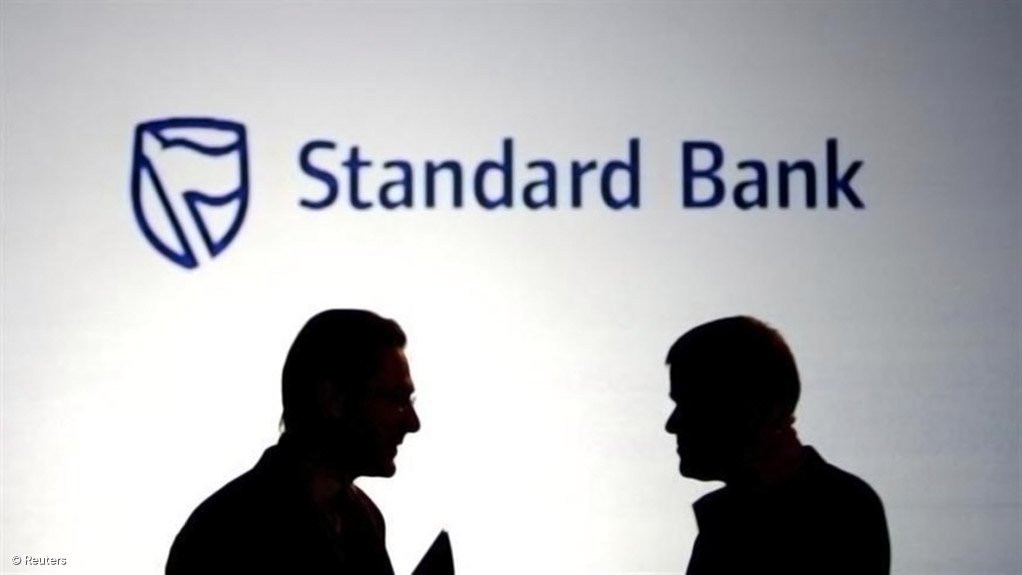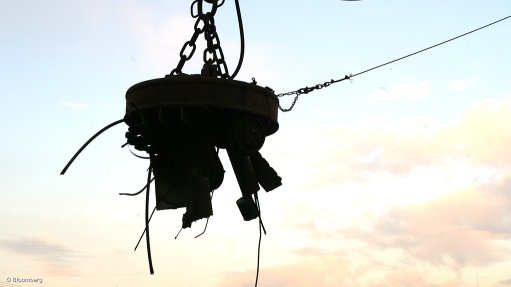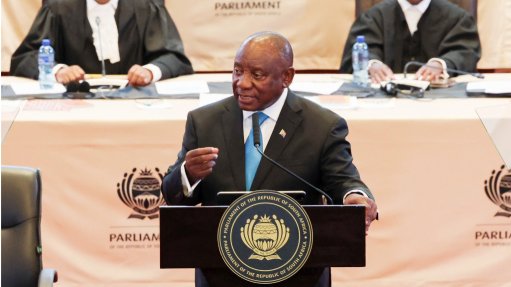Standard Bank assesses the impact of elections on capital markets globally
With 49% of the world’s population having voted in elections this year, experts gathered by Standard Bank have unpacked whether this has had an effect on capital markets and investor sentiment.
Elections represent critical junctures where the “confidence game” between financial markets and political actors often plays out in stark ways, particularly considering that this year has been a record year for elections with an estimated 4.2-billion people globally having voted in more than 70 countries.
Standard Bank Group (SBG) says markets can either respond positively or negatively to elections, with investors assessing candidates and their expected policies.
In developing countries such as South Africa, where political uncertainty is high and domestic conditions volatile, market reactions can be severe.
“Markets can punish electoral uncertainty and the risk of market unfriendly policies with capital flight, higher interest rates, lower stock market valuations and currency depreciation,” says SBG investment solutions head Duncan Wattam.
In South Africa’s case, SBG chief economist Goolam Ballim says the African National Congress has been losing support over the last 20 years, having garnered 70% of the national vote in 1994 and just under 40% this year; however, the liberation ideology remains strong.
“Two-thirds of society are still voting for a transformation agenda. The anchor point for South Africa’s prosperity is now the Government of National Unity (GNU),” he adds.
He mentions that the country has been going through a fiscal stabilisation process over the last five years, with some reforms and State-owned-entity restructuring having occurred, with the GNU offering the opportunity for a continued stable trajectory.
He believes the intent of good governance binds the former ruling party with the Democratic Alliance, which can be a bedrock to hold fast the GNU.
Ballim is confident that national reforms will become more galvanised in the new administration, including a broader scope for Operation Vulindlela that has been driving many of these reforms.
Business Leadership South Africa CEO Busi Mavuso says the turnout of the elections locally showed the strong disapproval of the status quo, which was unsustainable and untenable.
She adds that the GNU involves not giving any single political party too much power, which the markets have responded to positively. She explains that the markets are looking for fiscal sustainability, policy certainty and an environment that assures returns on investment.
Nonetheless, South African business confidence remains at 30%, which is not good if the country wants to garner higher levels of foreign investment.
On the continent, Mavuso says, changes in political leaders could reflect on foreign investment, hence the importance of certainty and continuity. This is especially important as more countries compete for international financing and favourable trade agreements.
University of Pretoria political sciences senior lecturer Dr Sthembile Mbete says policy, markets and the economy are more interlinked than some people may think.
She says people often vote according to the state of their economic situation and that economic growth, such as India’s average of between 7% and 8% GDP growth in the last few years, does not necessarily trickle down to all.
She agrees with Stanlib chief economist Kevin Lings that groupings such as BRICS can help overcome some of the fractured elements that are being witnessed globally.
Meanwhile, Lings and Mavuso are confident that more interest rate cuts and easing inflation is in store for South Africa, while there is increasing scope and enablement for private-sector investment in infrastructure development.
Both state that the reform agenda needs to be accelerated to encourage more investment and garner more international interest. “There is a lot of value to be unlocked, but we have to take a longer-term view and hope the GNU remains together,” Lings adds.
Ballim also expects more “mood-easing” in Africa in general, with more countries averaging high real growth rates, while regional approaches to economic growth are also increasing.
GLOBAL CONTEXT
Lings says there has been a shift towards “extreme politics” which leads to an exacerbation of the already fractured world economy.
The growing disparities between “left or right” is threatening global integration, coordination and functions such as the World Bank, the Group of Twenty and BRICS.
“We need those institutions to function effectively and to be on the same side. Voting globally has reflected that increasing split in parties or leaders’ priorities. We end up with fractured globalisation, not deglobalisation. Capital flows have not changed, but the way in which trades are moving is changing,” Lings states.
For example, he says the US is importing more products from Mexico than China at the moment, for the first time, which reflects the US leadership’s view on China, as well as trends of “onshoring”, where supply chains are becoming more localised or regionalised.
This becomes increasingly difficult for countries such as South Africa that are dependent on major markets for exports, with increasing geopolitical tension and trade movements forcing South Africa to “pick a side”.
Ideally, there should not be this massive adversary between large economies, Lings explains, adding that increasing antagonism between China and the US has created pressure for many countries to choose sides.
It ushers in major risks when countries seem to be biased or aligned to certain regions and their policies, he adds.
On the other hand, there are counties that function more independently from what happens in the US, Lings says, citing Chile as an example. Chile has cut rates eight times this year – a lot of markets are not waiting for the US.
Mbete comments that geopolitical tension causes insecurity in many countries, particularly for those with relatively open economies such as South Africa. “The role we seek to play in the world has [big] consequences externally and on our internal economic environment.”
Rather than focusing on the possible re-election of Donald Trump as US President, Mbete suggests that South Africa should consider its role on the African continent and advance intercontinental trade.
She mentions that the Southern African Development Community is the least integrated area on the continent, a situation South Africa has the opportunity to change.
Considering the conflicts in many countries at the moment, Ballim says deliberate international diplomacy bodes well for countries such as Brazil. He believes a sense of neutrality can be navigated.
“Trade opportunities are more profound in the East, while per capita income still dominates in the US. We need to have that level of understanding and sophistication in our outreach,” he says.
He agrees with Mbete that the geopolitical landscape is changing to one of added volatility and increased risk premium. As businesspeople, this makes the capacity to profit harder.
Nevertheless, he says South Africa can articulate its policy more clearly to navigate this landscape more appropriately.
Article Enquiry
Email Article
Save Article
Feedback
To advertise email advertising@creamermedia.co.za or click here
Announcements
What's On
Subscribe to improve your user experience...
Option 1 (equivalent of R125 a month):
Receive a weekly copy of Creamer Media's Engineering News & Mining Weekly magazine
(print copy for those in South Africa and e-magazine for those outside of South Africa)
Receive daily email newsletters
Access to full search results
Access archive of magazine back copies
Access to Projects in Progress
Access to ONE Research Report of your choice in PDF format
Option 2 (equivalent of R375 a month):
All benefits from Option 1
PLUS
Access to Creamer Media's Research Channel Africa for ALL Research Reports, in PDF format, on various industrial and mining sectors
including Electricity; Water; Energy Transition; Hydrogen; Roads, Rail and Ports; Coal; Gold; Platinum; Battery Metals; etc.
Already a subscriber?
Forgotten your password?
Receive weekly copy of Creamer Media's Engineering News & Mining Weekly magazine (print copy for those in South Africa and e-magazine for those outside of South Africa)
➕
Recieve daily email newsletters
➕
Access to full search results
➕
Access archive of magazine back copies
➕
Access to Projects in Progress
➕
Access to ONE Research Report of your choice in PDF format
RESEARCH CHANNEL AFRICA
R4500 (equivalent of R375 a month)
SUBSCRIBEAll benefits from Option 1
➕
Access to Creamer Media's Research Channel Africa for ALL Research Reports on various industrial and mining sectors, in PDF format, including on:
Electricity
➕
Water
➕
Energy Transition
➕
Hydrogen
➕
Roads, Rail and Ports
➕
Coal
➕
Gold
➕
Platinum
➕
Battery Metals
➕
etc.
Receive all benefits from Option 1 or Option 2 delivered to numerous people at your company
➕
Multiple User names and Passwords for simultaneous log-ins
➕
Intranet integration access to all in your organisation





















